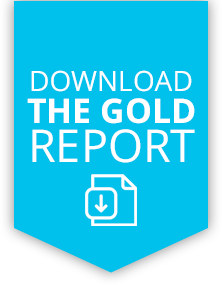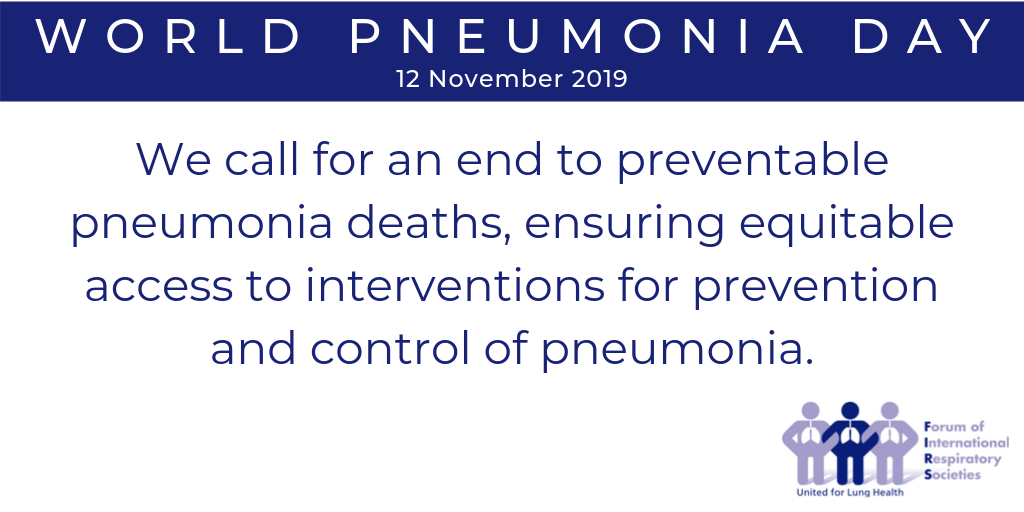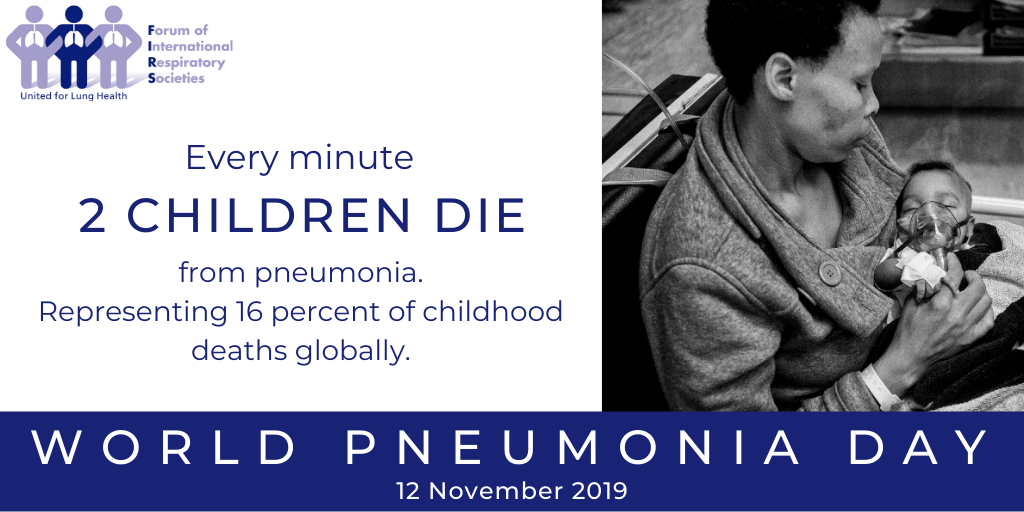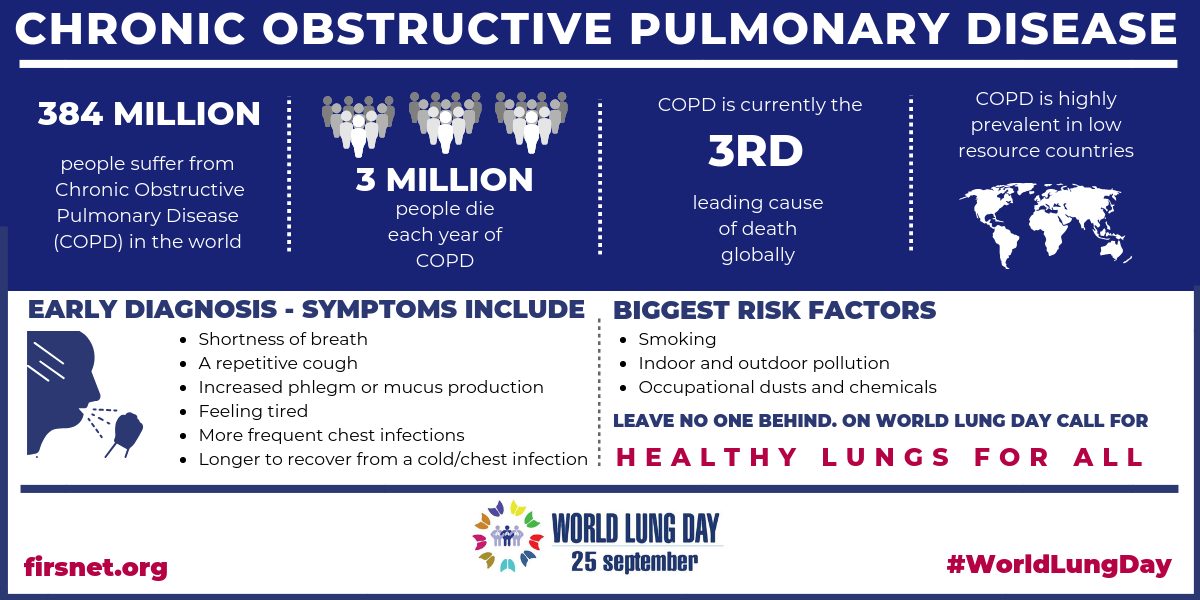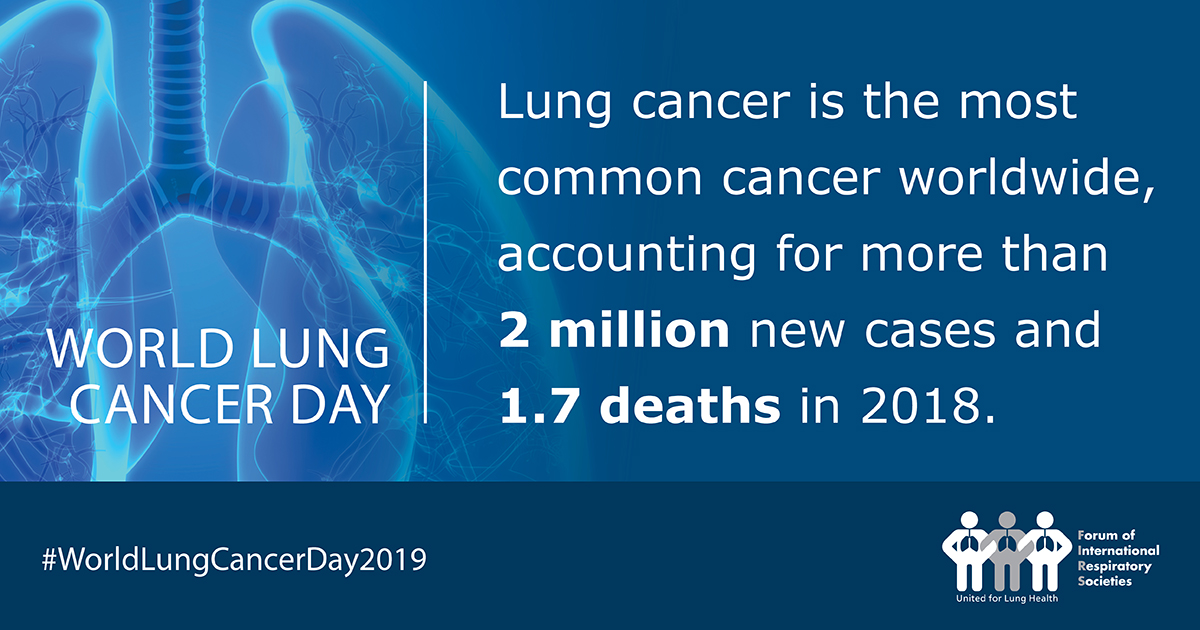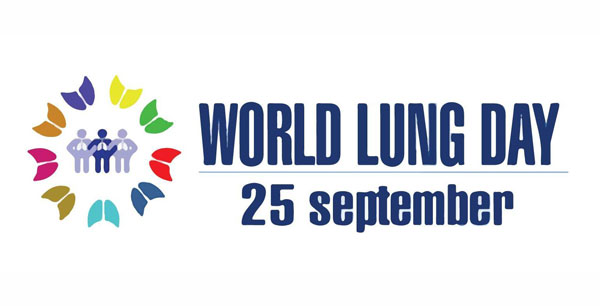World Lung Day 2020: Respiratory groups call for research to prevent, detect and treat respiratory infections
Cape Town, Glenview, Lausanne, Montevideo, New York, Paris, Tokyo, 25 September 2020
Today, on World Lung Day (WLD), GOLD is united with members of the Forum of International Respiratory Societies (FIRS) and WLD partner organisations to advocate for respiratory health globally and call for more research to prevent, detect and treat respiratory infections.
In 2020, the coronavirus (COVID-19) pandemic has made the world aware of how deadly respiratory viruses can be. In reality, respiratory infections have been with us for a very long time and will continue to be a major source of human suffering and death.
Apart from viruses, there are many other sources of respiratory infection that cause much human disease. These include bacteria, fungi and other organisms which may infect the upper airways (nose, sinuses and throat) and/or, more worryingly, the lower airways and lungs (such as bronchitis and or pneumonia).
They can cause lung symptoms such as cough, fast breathing, green sputum and breathlessness, as well as general symptoms such as fever, feeling ill and weight loss. Chest pain while breathing or coughing may also occur.
Respiratory infections impose an immense worldwide health burden:
- Each year almost 700,000 children die from pneumonia. 80 percent of deaths are in children under 2 years and adults above 65 years. Almost all deaths occur in low and middle-income countries.
- Each year there are 10 million new cases of tuberculosis (TB) and 1.5 million deaths. Deaths from TB occur mostly in children under 5 years and adults in the 20-35 year age range. Over 95 percent of TB deaths occur in low- and middle-income countries.
- Viral respiratory infections can occur in epidemics and spread rapidly within communities across the globe, to become global pandemics. COVID-19 is one such viral respiratory infection that has affected more than 25 million people worldwide and nearly 860,000 have died by the beginning of September 2020. The burden will continue to exponentially increase in the near future.
WLD is an annual lung health awareness day, occurring yearly on 25 September. To date nearly 200 organisations and many more individuals support WLD through lung heath advocacy and action. This year, with respiratory health firmly in the spotlight, it is a great opportunity to raise awareness of the burden of respiratory infections and call for:
- Health security and prevention of future COVID-19 outbreaks.
- Predictive tests to show who is immune and who will develop disease from novel infections.
- Diagnostic tests to identify and treat those at risk to progress once infected.
- High quality randomised controlled trials to find the best vaccines and treatments.
- Access to effective, affordable vaccines and treatments for all.
- Educating all on the benefits and safety of the Influenza and Pneumococcal vaccines, as well as the COVID-19 vaccine once developed.
To learn more about World Lung Day and download the fact sheet, graphics and pledge campaign go to the World Lung Day Toolkit.
About the Forum of International Respiratory Societies (FIRS)
The Forum of International Respiratory Societies (FIRS) is an organisation comprised of the world’s leading international respiratory societies working together to improve lung health globally: American College of Chest Physicians (CHEST), American Thoracic Society (ATS), Asian Pacific Society of Respirology (APSR), Asociación Latino Americana De Tórax (ALAT), European Respiratory Society (ERS), International Union Against Tuberculosis and Lung Diseases (The Union), Pan African Thoracic Society (PATS), Global Initiative for Asthma (GINA), and the Global Initiative for Chronic Obstructive Lung Disease (GOLD).
The goal of FIRS is to unify and enhance efforts to improve lung health through the combined work of its more than 70,000 members globally.

